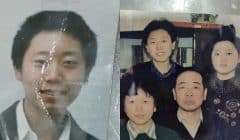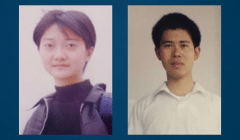Social Media Campaigns Are Not “Falun Gong” Pages

Falun Gong demonstrators hold memorial pictures as they march on Capitol Hill in Washington, DC, July 17, 2014, as part of the events sponsored by the Falun Dafa Association of Washington, DC, to end "Chinese persecution of Falun Gong practitioners". AFP PHOTO / Jim WATSON (Photo by JIM WATSON / AFP)
A recently published report by the Australian Strategic Policy Institute about Falun Gong “affiliated” social media pages mischaracterizes these initiatives and their content, as representing Falun Gong. They also accuse these initiatives of spreading “disinformation” and “twisting the truth.”
These accusations are false, and demonstrate a few significant problems in their reportage:
- While they claim these social media campaigns spread “disinformation,” or “twisting the truth,” they present no evidence for this other than the accusation that the campaign authors have not disclosed their Falun Gong “affiliation” and engage in “inauthentic activity.”
. - The accusation that there is a Falun Gong “affiliation” itself is misguided. These initiatives are, in fact, not operated by Falun Gong organizations nor do they represent Falun Gong.
. - The report overall demonstrates discrimination toward the Falun Gong faith by implying that the page owner(s) must disclose their Falun Gong faith if they don’t want their page to be labeled under “disinformation.”
Falun Gong is a spiritual practice done by tens of millions in over 80 countries around the world. Falun Gong itself is not a political nor a social movement. The domain of its teachings addresses the realm of personal health and spiritual growth.
Furthermore, the people who practice Falun Gong are a diverse group, exhibiting a wide range of ethnicities, political leanings, and social perspectives. Therefore, their individual perspectives of politics and society at large are just that: individual.
To attribute a particular political perspective to Falun Gong as a whole is no more accurate than to label Christians or Buddhists as belonging to a particular political party.
Yet, the reports in question do this to Falun Gong. That is, they assume the faith of the actors is the primary element to explain the motives, goals, and connections among the actors, rather than the actual motives, goals, and connections of the individual actors behind any given initiative.
It is also highly questionable as to why these reports, first and foremost, call into question the faith of the actors at all, rather than address the substance of the content they produce? Must owners of every social media group first disclose their religious beliefs before they are permitted to speak?
But what’s really going on here? If Falun Gong is not political, and if the Falun Gong faith is not the driving force behind these initiatives, why, you might ask, does the content from these initiatives share common themes related to Falun Gong and against the CCP? Who are all these people, what is their motivation, and perhaps most important of all, is there merit in their message?
Let’s explore these questions.
Falun Gong practitioners, their supporters and many other groups of Chinese people who have lived under CCP tyranny have, in fact, lived through decades of unprecedented violence driven by political and social turmoil inside China. From this experience, they’ve gained an acute sense for just how dangerous the CCP is, as well as how asleep the rest of the world is with respect to facing this danger. Yes, Falun Gong practitioners make up a significant portion of this group sounding the alarm, but they are certainly not alone. There’s a growing chorus of people, from other Chinese dissidents to religious and ethnic minority groups in China to even senior government officials in the West, who are clear-minded about the CCP and urging the international community to wake up.
Thus, faced with this reality, there is indeed large groups of mostly Chinese people working feverishly to help the international community learn what they know — that the CCP brings mayhem, destruction, and ultimately death, to everything it touches.
As to the actual content displayed on these Facebook pages, there may be a few points to keep in mind, which can provide useful context to what we’re seeing.
If some of their messages seem off-putting or even hard to understand, know that these are mostly first-generation immigrants from China lacking knowledge in the cultural and social norms of the West. They are trying their best, but communication is not easy.
If you find it strange that their identities may not be immediately obvious, keep in mind that many may be reluctant to use their real names in public or on social media because doing so would put their family in China in real danger.
If some of their messages seem shrill or even politically offensive, know that these are people who’ve stared evil in the face (in China), were burned by the experience, and are simply hoping to save you from the same terrible experience. And many are likely to gravitate toward policies they feel protect their adopted country from the dangers posed by the CCP.
Again, to be clear, these pages do not represent Falun Gong. They appear to be individuals and groups bringing to bear their own experiences and perspectives on the dangers presented by the CCP. There may be some value looking past their faith “affiliation,” and instead, evaluate the essence of their message. From their lived experience, from their pain and suffering we might just learn something.










